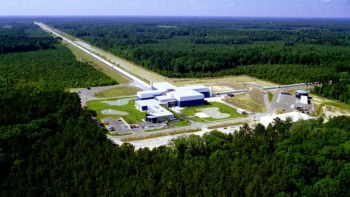
Science has been elevated to a cabinet-level position in the UK government for the first time in decades. The move occurred yesterday after Conservative prime minister Rishi Sunak announced the creation of a new Department for Science, Innovation and Technology, which will be led by Chippenham MP Michelle Donelan.
The new high profile for science came as part of a reshuffle of UK government, which will see the Department for Business, Energy and Industrial Strategy (BEIS) split into three separate departments. In addition to science, there is a new Department for Energy Security and Net Zero as well as a Department for Business and Trade.
Donelan, who was previously secretary of state for digital, culture, media and sport, has been made secretary of state for science, innovation and technology. George Freeman retains his science brief, becoming minister of state in the new department. He was previously minister of state for BEIS.
According to the UK government, the new science department will “focus on positioning the UK at the forefront of global scientific and technological advancement” and “direct record levels of research and development”. In a statement, it said that a department focused on turning “scientific and technical innovations into practical, appliable solutions will help make sure the UK is the most innovative economy in the world”.
‘Good news’
Tom Grinyer, group chief executive officer of the Institute of Physics, which publishes Physics World, says that the cabinet seat for science is good news for the UK as it “puts science and innovation exactly where they should be – right at the heart of government”.
Grinyer says that Donelan must work with the scientific community and other departments to ensure the government’s plan for the UK to become a global science superpower stays on track and “that there is a genuinely joined-up approach to science across government”.
Adrian Smith, president of the Royal Society, has also welcomed the creation of the new science department. In a statement, he says it signals that “research and innovation sit at the heart of the prime minister’s productivity and growth agenda”. UK creates ‘high-risk, high reward’ research funding agency
Smith believes that Donelan’s first job must be for the UK to secure association to Horizon Europe and other European Union (EU) science programmes. Participation in Horizon Europe had been agreed as part of the post-Brexit trade deal between the UK and EU, but the association agreement has not yet been signed and has since become a bargaining chip in other political issues related to Brexit.
“These schemes support outstanding international collaboration and without being part of them we are undermining the prime minister’s stated ambition for the UK to be at the forefront of science and technology globally,” Smith says.
Daniel Rathbone, assistant director of the Campaign for Science and Engineering, also highlights access to European research programmes as a key issue for the new department, along with reform of the R&D tax-relief system.
Rathbone warns, however, that it will be vital that “the practicalities of making changes in Whitehall aren’t allowed to take away from the time and resources needed to drive forward the promising [science and innovation] agenda the government has previously set out”.
- Businesses are being held back by a lack of apprentices in key physics-related roles. That is according to a new report by the Institute of Physics, which highlights a massive shortfall in the numbers of women pursuing such apprenticeships. The report, which surveyed nearly 300 apprentices and interviewed over 90 organisations, also finds that people are concerned about the cost of living crisis while employers say they struggle to get into schools to talk to young people about their options.



